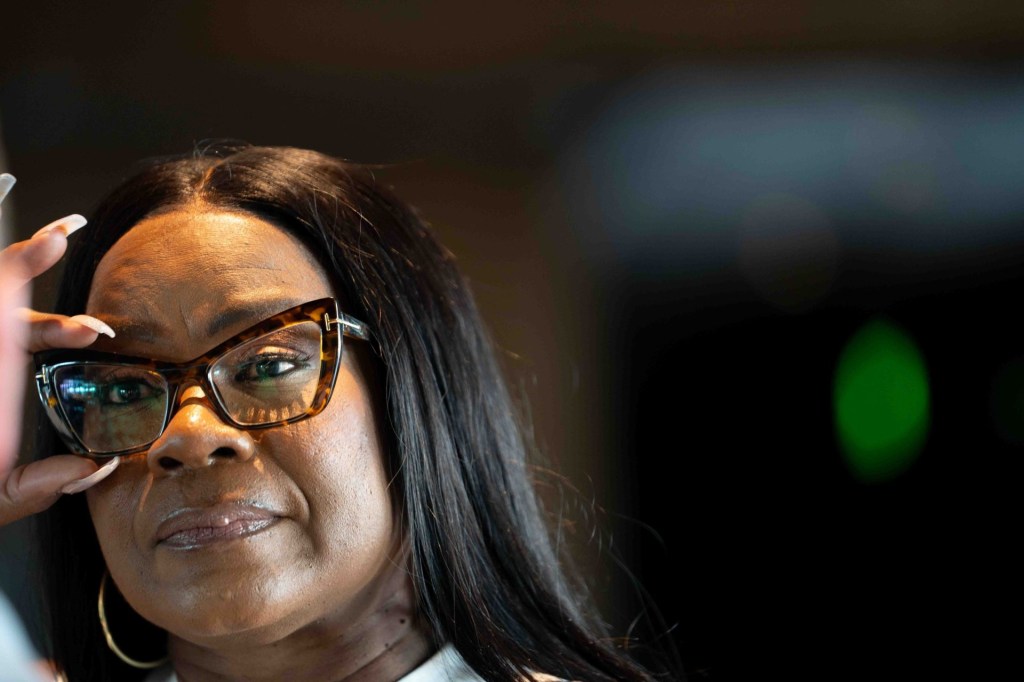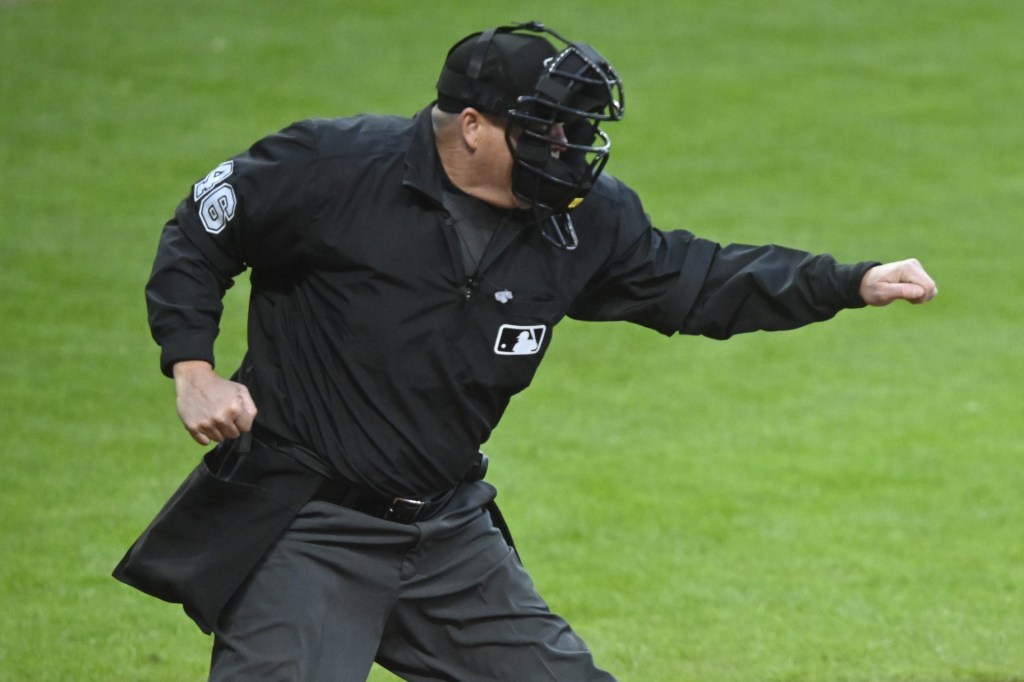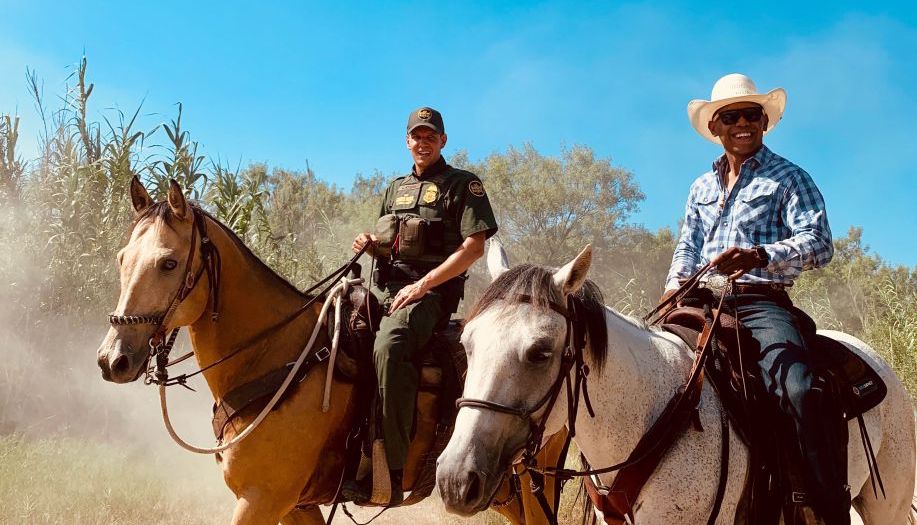
While the U.S. Border Patrol has come under fire for its treatment of immigrants, several Professional Bull Riders, including 2016 champion Cooper Davis, rode horse patrol with agents on July 11. The agents apprehended seven migrants along the Mexican border; another dove into the Rio Grande river to escape.
When state lawmakers in Montana shot down a proposed “Day of the Cowboy” due to complaints the term is sexist and racist, PBR Chief Executive Officer Sean Gleason threatened to end his league’s lucrative, 24-year old event in Billings. The state legislature caved. And Gleason was named chairman of the National Cowboy Council.
Meet the most politically incorrect pro sports league in America: the flag-waving, Border Patrol-sponsored cowboys of PBR.
There’s no subject more incendiary than the crisis at the U.S/Mexico border. At a time when other leagues and properties are running away from politics, the outlaw PBR is leaning into a brand persona that defies political correctness. Its athletes are living on the edge, personally and politically. Gleason takes a similarly defiant approach when it comes to “vigorously” defending the Border Patrol.
It’s not about politics, it’s about common sense, said Gleason, whose late father James served as a state police officer and county sheriff. The men and women of the Border Patrol are enforcing the laws of the United States, he said. If critics don’t like PBR stars riding the river with the Border Patrol, that’s too bad. No PBR fans have complained.
“If we do get criticism, we’ll continue to do exactly what we’re doing today,” stated Gleason. “We will not vary our stance. And we will not react to the misinformed opinions of the few.”
With an estimated 1 in 15 rides resulting in injury, bull riding has been called the world’s most dangerous sport. Those perils were underlined July 12 when 19-year old rider Klayton Lakevold was put into an induced coma due to bleeding on the brain after colliding with a bull’s head at a PBR event in Canada. Gleason asked fans to keep Lakevold in their prayers.
At a time when sports leagues publicly wring their hands over head trauma, PBR promotes videos of the most brutal “wrecks,” or falls, suffered by riders. According to rules, they must ride the world’s best bucking bulls for eight seconds without being thrown off. When 150-pound cowboys ride horned, 2,000-pound bulls, mayhem often results.
Mason Lowe, a 24-year old PBR rider, was killed at an event this January in Denver after being stomped in the chest. Lowe was the third bull rider killed in competition since PBR was founded in 1992. Others have been crippled. After Canadian star Ty Pozzobon took his own life in 2017, the 25-year-old was found to be suffering from CTE.
PBR star Chase Outlaw (real name), suffered 30 broken bones in his face during a brutal wreck last year. He gamely returned to competition a few months later. He’s now ranked No. 3 in the world.
At the same time, PBR mandates newer riders wear helmets (rather than traditional cowboy hats) for safety. The league maintains it has the strictest concussion protocol in sports. Rather than running away from the sport’s gut-wrenching violence, PBR tries to be transparent. If a rider is seriously injured, the league doesn’t show the wreck video until they’re back on their feet and give the OK.
“Being a cowboy isn’t about boots, hats and buckles. It’s about the way you live your life. With honesty and transparency and authenticity. That’s who we are. And we articulate that in our outward impression,” said Ellen Newberg, chief marketing officer of PBR. “Part of that is being really honest about the fact that bull riding is an inherently dangerous sport. Period. We’re not going to shy away from it. We’re not going to apologize for it. It’s something our bull riders elect to do.”
READ MORE: New Ballpark Has Las Vegas Buzzing About Baseball
You may love or loathe PBR’s approach. But the “toughest sport on dirt” points to strong growth numbers in 2019.
PBR has generated over 1 billion social impressions year-to-date across Facebook, Twitter, Instagram and YouTube, according to Josh Tucker, who directs the league’s social media efforts. Plus, another 200 million views across YouTube, Instagram and Facebook over the same period.
Since Jan. 1, fans have consumed more than 120 million minutes of PBR social content across Facebook and YouTube, said Tucker. At the halfway point of 2019, PBR’s total video views, as well as minutes watched, surpassed all of 2018.
Since the league launched its “Celebrate America” effort in 2015, which typically honors local cops and members of the U.S. armed forces, ticket sales have risen 52%, according to Newberg.
During CBS Sports’ pregame coverage of Super Bowl LIII this February, PBR unveiled a national ad campaign themed: #BeCowboy. The spot declared: “Some say cowboys are a dying breed. We say we’ve never been more alive.”
Almost all pro leagues go out of their way to avoid touching the third rail of politics. PBR, on the other hand, stomps on it with their cowboy boots.
The league is unabashedly pro law enforcement and military. When a haunting photo of a dead migrant father and his tiny daughter on the banks of the Rio Grande went viral, Gleason sprang to his sponsor’s defense. He posted a video of “hero” agents saving a drowning 13-year old migrant boy from the same river. The Border Patrol has sponsored PBR since 2016.
Previously, the PBR boss blasted the attempt to banish the term “cowboy” from polite conversation. Especially in the Big Sky Country of Montana, where President Donald Trump won the Western state by a 20% margin in the 2016 Presidential Election.
“If we can have an ‘International Day of the Woman,’ why can’t we have a day that acknowledges the most iconic symbol of American history, in a state that’s uniquely associated with the lifestyle?” Gleason wrote on Facebook. “I guess the PC culture we have devolved into, waging war on all forms of masculinity and even the Founding Fathers, has now turned its attention to attacking cowboys.”
When Kaepernick kneeled to protest racial injustice in 2016, PBR stars counter-protested his protest. The league’s top 35 riders signed a pledge vowing to stand respectfully during the presentation of Old Glory and singing of “The Star-Spangled Banner.”
Three years later, Gleason doesn’t think there’s a “snowball’s chance in hell” an American or foreign-born PBR rider would take a knee during the playing of the American, Mexican, Brazilian, Canadian or Australian anthems. The issue would be dealt with swiftly.
“I don’t think we’ll have to address that issue as a league. I think the riders all have very strong beliefs that are consistent with ours,” he said. “That’s one of the beauties of our sport. We still have a very grateful competitor base that’s appreciative of the opportunities that this country affords them.”
Megan Rapinoe, star of the four-time World Cup winning U.S. women’s national soccer team, has vowed never to visit Trump’s “f——” White House. The president’s son, Donald Trump Jr., enjoyed a PBR event at Madison Square Garden with his kids last year.
Sports leagues now operate in a hyper-sensitive environment where almost anything can be deemed offensive. Just ask the NFL, which has struggled to balance free speech, social justice and patriotism the past three seasons.
Animal rights activist groups like People for the Ethical Treatment of Animals (PETA) have repeatedly lambasted bull riding for its alleged animal cruelty. Gleason fired right back, accusing them of spreading “lies and disinformation.”
Said Gleason: “I am diametrically opposed to their views. Again, they use a lot of misinformation, and a lot of rhetoric, to try to rile up support for their cause.”
Still, social media videos of PBR stars beating the brush for poor migrants with the Border Patrol could backfire on the league which is owned by Endeavor in Los Angeles.
Newberg admits there’s a fine line between Gleason’s personal voice — and the voice of PBR.
The league, which has a TV contract with CBS Sports through 2028, doesn’t want to alienate customers, she said. At the same time, PBR is proud of its partnership with the Border Patrol. Newberg doesn’t think Gleason’s post was particularly political anyway.
“That is not the intent of the post. The intent is to celebrate our military arm – and what they do for our community,” she said. “If there’s backlash or questions, and we certainly anticipate that coming to fruition, we will respond to them accordingly.”
PBR also likes to tout its growing diversity. Two of the league’s most compelling young stars are African-American Ezekiel Mitchell and Navajo sensation Keyshawn Whitehorse, the 2018 Rookie of the Year.
Along with the Border Patrol and local sheriffs, Whitehorse rode the Rio Grande in Laredo, Texas. He was joined by Cooper, PBR star Sean Willingham and bullfighter Shorty Gorham, who posted videos to Instagram. All four are sponsored by the Border Patrol, which uses PBR as a key recruiting tool.
There’s also Najiah Knight, a 12-year old Mini Bull Rider, who wants to become the first female to crack the male-only PBR. “I want to show everybody that girls can do anything,” says the 6th Grader in one video.
Knight herself prefers the term “cowboy” to “cowgirl,” noted Newberg.
“We’re continuing to develop our athletes, regardless of gender. While predominantly a male sport, especially on the premier side of things, there’s no (law) that prohibits females from rising through the ranks,” she said. “I love Najiah Knight. She’s a fearless little girl who represents so much of what it means to be a cowboy.”
PBR doesn’t take sides between Democrats and Republicans, said Gleason. But the league’s nationalist bent makes it an outlier in a sports world where the most influential voices are reliably progressive.
After most of the Super Bowl champion Philadelphia Eagles declared they wouldn’t visit the White House due to Trump’s “sons of bitches” comment about kneeling NFL players, the President rescinded his invitation.
LeBron James called Trump a “bum.” The Golden State Warriors coach Steve Kerr wore a T-shirt urging stricter gun control laws during the 2019 NBA Finals. On Monday, Kerr urged Congress to call out the President for his “racists tweets.”
But like the progressive Nike, PBR knows its customers. Deliberately zigging into the Culture Wars — while other leagues meekly zag away — fits PBR’s rebel image, according to Allen Adamson, marketing consultant at Metaforce and professor at NYU’s Stern School of Business.
“Given (PBR’s) core audience, being the one league that embraces the ‘Right’ side of the political spectrum makes a bunch of sense,” Adamsom says. “If you stand for everything, you stand for nothing. Sports is about more than just watching an event. It’s about connecting with people who share the same passion and have the same view on life.”
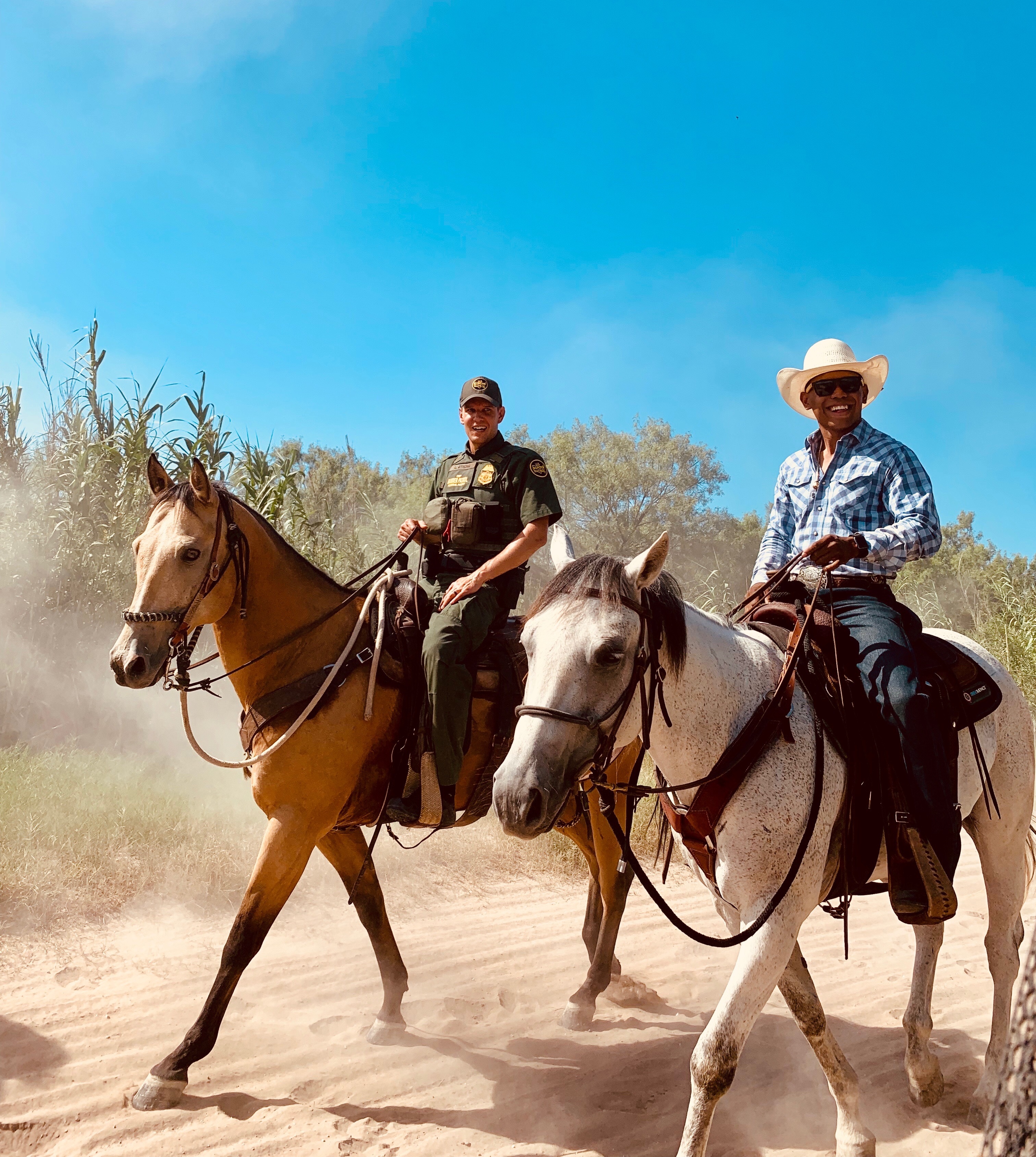
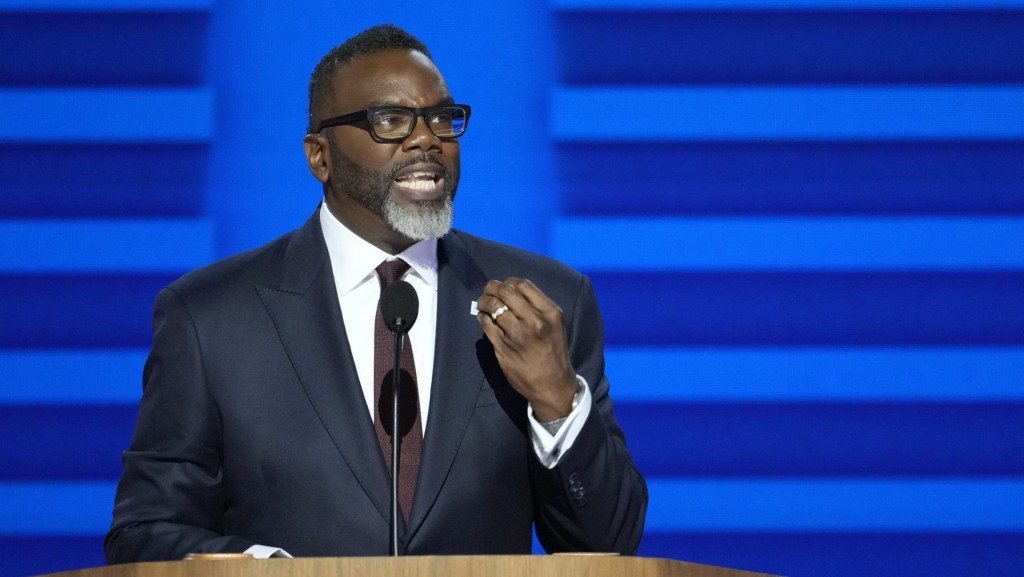
![[US, Mexico & Canada customers only] Feb 6, 2026; Riyadh, SAUDI ARABIA; Jon Rahm in action during the third round of play at LIV Golf Riyadh at the Riyadh Golf Club.](https://frontofficesports.com/wp-content/uploads/2026/03/USATSI_28173562_168416386_lowres-scaled.jpg?quality=100&w=1024)
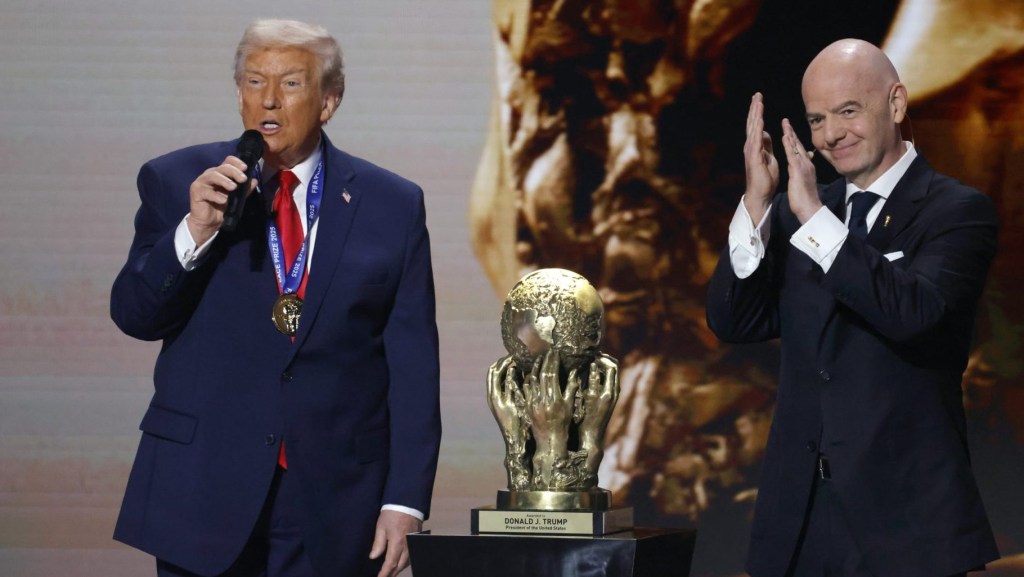


![[Subscription Customers Only] Jun 15, 2025; Seattle, Washington, USA; Botafogo owner John Textor inside the stadium before the match during a group stage match of the 2025 FIFA Club World Cup at Lumen Field.](https://frontofficesports.com/wp-content/uploads/2026/02/USATSI_26465842_168416386_lowres-scaled.jpg?quality=100&w=1024)
![[Subscription Customers Only] Jul 13, 2025; East Rutherford, New Jersey, USA; Chelsea FC midfielder Cole Palmer (10) celebrates winning the final of the 2025 FIFA Club World Cup at MetLife Stadium](https://frontofficesports.com/wp-content/uploads/2026/02/USATSI_26636703-scaled-e1770932227605.jpg?quality=100&w=1024)



